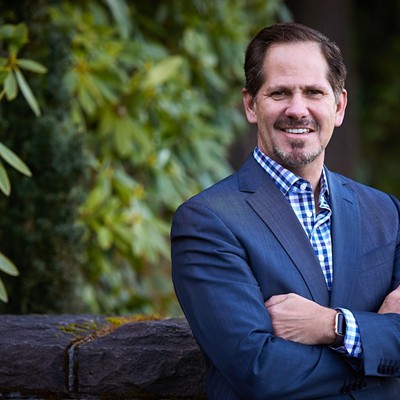By now, delegate votes are being racked and tallied and the presidential primaries are getting exciting. In April, the big dates to watch for the Republican and Democratic primaries will be April 19, when New Yorkers will vote, and April 26, when five states will hold primaries including Connecticut, Delaware, Maryland, Pennsylvania and Rhode Island. Oregon's primary is held on the third Tuesday in May, which this year falls on May 17.
New York is important because of the high number of delegates at stake. There are 291 Democratic delegates in New York and 95 Republican delegates. It's also interesting because three of the candidates have ties to New York (Republican Donald Trump, and Democratic candidates Sen. Bernie Sanders and former U.S. Secretary of State Hillary Clinton).
Winning the Democratic nomination in 2016 will require 2,383 of 4,765 total Democratic delegates. For Republicans, 1,237 of 2,472 Republican delegates are needed. Oregon has 74 Democratic delegates and 28 Republican delegates.
Superdelegates
Last weekend in downtown Bend, people responded to the question: "What do you think about superdelegates?" The answers ranged from "I think I've heard of them," to "I'm really mad about what happened in 1968." Delegate math is a science unto itself and differs from state to state and party to party and rules change election to election, so it's not at all unusual to be perplexed by this system.
Superdelegates, unique to the Democratic Party, are party elites who vote as they please. They are not bound to represent voters. In a nutshell, they make up 712 unpledged delegates, or 15 percent of the vote (30 percent of the vote needed to win the nomination).
So-called superdelegates, (the official term is "unpledged" delegates) include the Democratic members of Congress (U.S. House and Senate), Democratic National Committee men and women, VIP party members and sitting Democratic governors, such as Gov. Kate Brown in Oregon. Superdelegates are allowed to vote for the candidate of their choice and thus do not represent the popular vote. The 712 total superdelegates in the Democratic Party could, in theory, support any candidate; however, the vast majority this year side with Clinton, who has already claimed two-thirds of all of the Democratic superdelegates.
Clinton, in this election, is sweeping the superdelegate race. By the end of March, she had claimed 469 superdelegates and Sanders had 31. Ahead of the Oregon primary, she has commitments and endorsements from six of the state's 13 superdelegates.
It's not at all reassuring that the system is fair when the Democratic National Committee Chair, Debbie Wasserman Schultz, comes out and says in an interview with CNN that superdelegates exist "To make sure that party leaders and elected officials don't have to be in a position where they are running against grassroots activists."
Though younger voters prefer Sanders to Clinton anywhere from 75-22 percent (Politico poll) to 60-40 percent (Harvard poll), as the primaries have unfurled, Sanders' campaign supporters have found the delegate system to be a rude awakening to party play. Several petitions have been launched signed by hundreds of thousands of voters asking superdelegates to align with voters, not party elites.
Primary elections began in January and by the end of March, Clinton had 1,712 delegates, including 469 superdelegates and Sanders had 1,011, of which 31 were superdelegates. Thus, 93.8 percent of superdelegates in primaries held before April sided with Clinton. Although Sanders has out-polled Clinton among millennial voters since before the primaries began, unless he wins the popular vote by a large margin, it will be difficult to bridge the gulf caused by the superdelegates.
On the Republican side, going into April, Trump leads, but is not guaranteed to win the 50 percent of delegates needed to secure the nomination. At the end of March, he had 736 delegates and Sen. Ted Cruz from Texas had 463. The Republican race is divided among three remaining candidates. Now that Sen. Rubio has dropped out of the race, after losing his home state of Florida on March 15, the three contenders remaining are Trump, followed by Cruz, trailed by Ohio's Gov. John Kasich.
The Republicans learned from 2012 that a drawn out primary replete with attack ads works against its nominee in the big race, but the shorter primary calendar hasn't worked as expected. There is a fair degree of delegate math funny business on the Republican side as well, with states such as Texas concocting complex delegate allocation systems. Oregon has a total of 28 Republican delegates, (10 at-large, 15 congressional district delegates and three party leaders).
The state with the next primary date is Wyoming on April 9. In May, Indiana, Nebraska, West Virginia, Kentucky, Oregon and Washington will hold primaries. In June, California, Montana, New Jersey, New Mexico, North Dakota, South Dakota, Puerto Rico, Virgin Islands and the District of Columbia will vote.
In Oregon, the last day to register by mail to vote in the presidential primary election is April 26. Voter registration can be accomplished by mail or online.

























